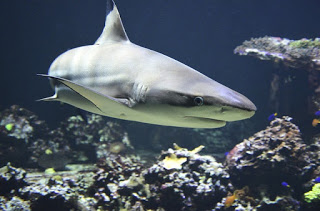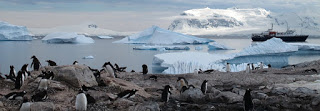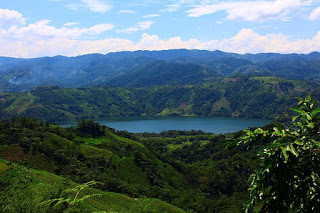1. SSF Celebrates Success! Eighteen Marine Species Receive International Protection
———————————————–
2. Wins 4 Fins Followup: Virgin Atlantic Refuses All Shipments of Shark Fins
Virgin Atlantic Airways has raised its voice on the practice of international shark finning by refusing to ship any shark fins. Its “Ethical Carriage of Cargo Policy” goes in depth regarding what types of live animals and commodities it will carry on its airlines based on CITES (Convention on International Trade in Endangered Species of Wild Fauna and Flora) regulations. Researchers estimate that 72 million sharks are harvested for their fins, and it is difficult to verify that all 10,000 tons of shark fins were obtained through legal and sustainable practices. Read more here
Recent studies have focused on the effects that shark finning is having on marine ecological communities due to the alarming decrease in shark populations. An article titled “Potential Role of Predators on Carbon Dynamics of Marine Ecosystems as Assessed by a Bayesian Belief Network” will be published this November in Ecological Informatics. Researchers are predicting that by removing predator species, such as sharks from the ocean will greatly increase the rate of carbon dioxide production. Results of the study show that fishing and shark finning have a direct link to climate change due to increasing biomass of smaller fish and zooplankton that are not efficiently transferred through the food chain when ocean predators are not sustainably harvested. Read more here
Oceanographers are calling for increased protection for sharks, due to their dwindling numbers from unregulated fishing, commercial fishing practices and international trade of shark products. Because sharks are slow reproducers, it is difficult for low populations to rebound. This concept made sharks a hot topic at the recent Convention on International Trade in Endangered Species (CITES). Held in Johannesburg, CITES participants voted in favor of increased protection for silky and thresher shark species. These top ocean predators play a crucial role in the food chain, and without higher fishing regulations, ocean ecosystems are facing disruption. Read more here
5. Antarctica: Now Home to the World’s Largest Marine Sanctuary
6. Colombia Expands Area of Protected Malpelo Hope Spot
Be sure to “LIKE” http://facebook.com/SeaSave to ensure our “Week in Review” is delivered to your newsfeed every Friday.
Sea Save Foundation is committed to raising awareness of marine conservation. The Week in Review is a team effort produced by the Sea Save staff to provide a weekly summary of the latest in marine research, policy, and news.










